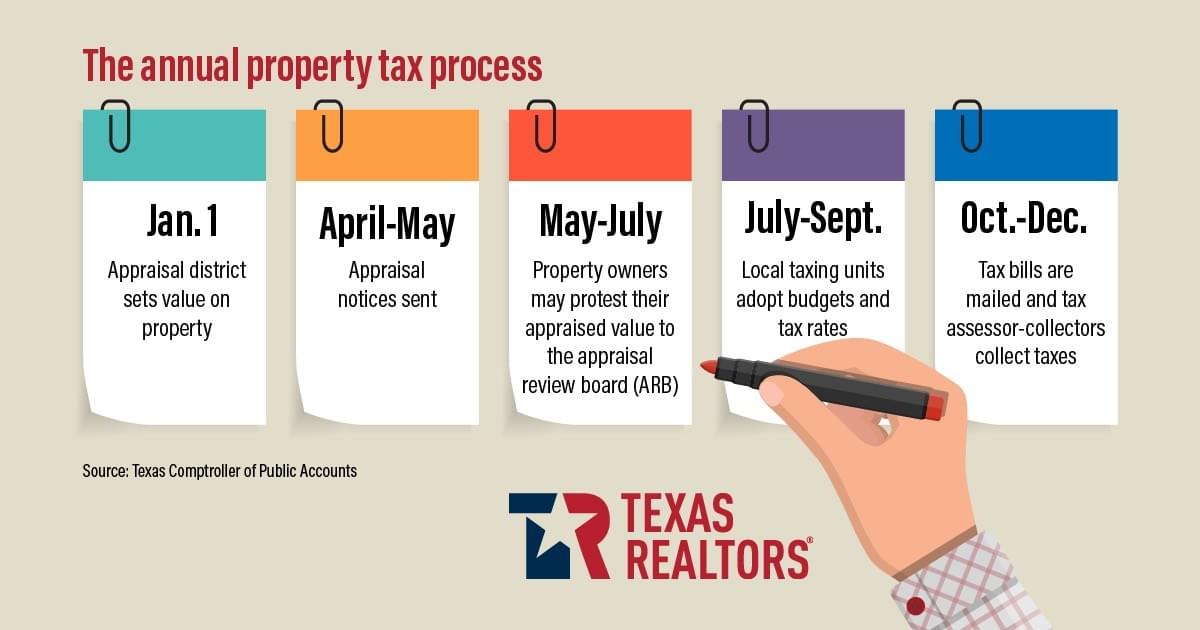Property Tax Assessments Decline and Larger Exemptions Signed Into Law
Property Tax Assessments Decline and Larger Exemptions Signed Into Law
By Brendan Hirschmann, REALTOR®
In May, Devonshire homeowners received their 2025 Notice of Assessed Values from the Kaufman Central Appraisal District. These notices reflect the proposed taxable value of your property—not your actual tax bill. The final tax bills won’t be issued until October, after local taxing entities adopt their official tax rates.
Let’s use my own property in Devonshire as an example. According to the appraisal district, my 2025 assessed value declined slightly from 2024. However, this assessed value is not the same as the market value—the price a buyer would pay in a typical sales transaction. Instead, it’s a value determined through mass appraisal methods with limited data about each specific property. The assessed value is used to apportion the total tax levy among all property owners in Kaufman County. So even if your assessed value goes down, your tax bill could still increase if tax rates rise or if other properties’ values decline more than yours.

This year, the Texas Legislature passed significant property tax relief laws. Governor Abbott signed Senate Bill 4, which increases the school district homestead exemption from $100,000 to $140,000, and Senate Bill 23, which raises the exemption for seniors and disabled homeowners to $200,000. These exemptions reduce the taxable portion of your home’s value, potentially lowering your final tax bill—especially if you qualify for multiple exemptions.
In Devonshire, Forney ISD represents the largest portion of most property tax bills. The district lowered its tax rate by 6.5 cents for the 2023–2024 school year, continuing a five-year trend of reductions totaling 25 cents. Homeowners under 65 with a homestead exemption are expected to see modest savings, while those 65 and older may see no increase or even a decrease in their tax levy due to the senior exemption.
Although the deadline to protest your 2025 property tax assessment has passed, many homeowners are turning to companies like Ownwell to handle the protest process on their behalf. These services typically charge a 25% commission on any tax savings they secure by successfully lowering your assessed value. While it’s too late to file a protest for this year, it’s worth considering for future years—especially if you believe your property has been overvalued.
Your final tax bill is determined by two key components: your assessed value and the tax rates set by each taxing unit—such as the county, city, school district, and special districts. These rates are finalized in late summer or early fall, and your October bill will reflect the combination of your assessed value, exemptions, and those adopted rates.
If you want to influence tax policy, the most powerful thing you can do is vote. Local elections and ballot propositions directly impact tax rates, exemptions, and school funding. With billions of dollars in tax relief on the table this year, your voice matters more than ever.
If you have questions about your property’s assessed value, exemptions, or how to prepare for next year’s protest window, I’m happy to help. Understanding your tax bill is the first step toward making smart financial decisions as a homeowner.
For personalized real estate advice from a Devonshire expert, call Brendan Hirschmann, REALTOR® at 972-559-4648. Brendan can provide you with the insights and guidance you need to navigate the current market trends and make informed decisions.